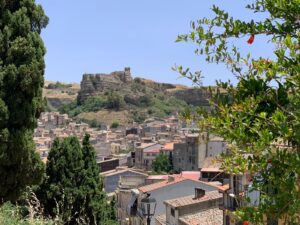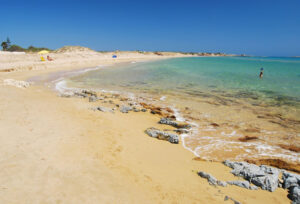‘Visti dagli altri’, l’acuta analisi di una giovane donna inglese sugli uomini del sud Italia.
A British perspective about young Italian men in Southern Italy
By Victoria Menashy
Sitting in my University halls, contemplating the excitement of my impending Erasmus adventure in Sicily, my Italian friend Marta looked on in concern. For my far off romantic vision of Italy was very different to the reality in which Marta had been raised, and which I was to shortly discover. A few weeks later I found myself at Stanstead airport wide-eyed and nervous as I boarded the plane to start my new life in Palermo. Checking my phone one last time before takeoff, a message flashed up on the screen, it was Marta with two pieces of invaluable advice. The first was simple enough, a lighthearted joke telling me to find the nearest gym upon arrival, how right she was. Daily portions of Brioche and Ice cream do no favors to your hips. The second was to avoid at all costs a certain breed of man known as “ mammoni. “Followed by a lengthy description on how to identify them. “ I mammoni “ as Marta explained are men, over the age of 30 who still live at home. Unable to do even the most basic of tasks their mothers take it upon themselves to cook and clean for them, administer medicine and generally interfere in all aspects of their lives. Needless to say the thought of any potential romance while abroad went up in smoke. I feigned tiredness as the young gentlemen in the next seat by the name of Piero tried to start up a conversation, lest he too suffer from this so called “Peter Pan syndrome.” I was judgmental from the off set. “How on earth could a man still live with his parents at 30 years old or even worse 40?” I wondered out loud. Were men not supposed to symbolize strength, virility and independence? Having left home at 18, I relished the freedom it brought me. Working and supporting yourself financially and emotionally from a young age, makes you stronger, hungrier for success, and fearless of what lies ahead. Upon landing, my worst fears had been confirmed. Piero’s mobile phone started to wring furiously the minute the plane touched down on the tarmac. “Pronto, Ciao Mamma, si si sto bene.” “Ridiculous he hasn’t been to war” I muttered sarcastically as an emotional Piero related to his mother that he had managed to survive the three hour long Ryan Air flight from London.
So there I was, finally, in Palermo, I should have been deliriously happy and yet I felt anxious, and very much alone. Walking through the arrivals gate to scenes of joyful reunions between my fellow passengers and their families I felt a tiny bit of jealousy. It was clear from the outset that the institution of the family reigned supreme in Southern Italy.
After a few days of meandering through Palermo’s old streets I found myself in a small café near to the cathedral. I was craving human interaction, and my icy English front had begun to melt. Before I even had a chance to sit down the waiter rushed over to inform me that the gentlemen sitting at the bar had taken it upon himself to buy me a drink. His name was Vincenzo, sweet natured and handsome. For once Marta’s rulebook went out of the window, I was instantly smitten. As we chatted however I noticed he avoided revealing certain details about his life. He was vague and seemed embarrassed to talk about his career and where he lived. Furthermore our conversation was interrupted by frequent phone calls from his mother asking what he wanted for dinner that night. I feared the worse and yet I desperately tried to convince myself otherwise. As it turned out Vincenzo’s is the same story shared by many thousands of young Italian men, the difference being that having lived in Italy I am now in possession of all the facts and am far less quick to judge. For the Italian reality is far different from the picture perfect postcard painted back in the UK. The employment situation in southern Italy is desperate. Since the introduction of the euro, prices have continued to increase and yet salaries have remained fixed. An average wage in Sicily works out at 1000 Euros a month, if and only if you are lucky enough to be in work. When you factor in 500 Euros a month for rent, 100 for bills, 100 for petrol, one starts to comprehend the desperation that is felt here. For whilst there are many who earn 1000 Euros a month, there are even more who earn less than that. Full time work resulting in a pay packet of 600 Euros or less is sadly all too common in Sicily. And so it is hardly surprising that young Italian men remain living at home. If they wish to remain in Italy these so-called “Mammoni” quite simply have no choice











